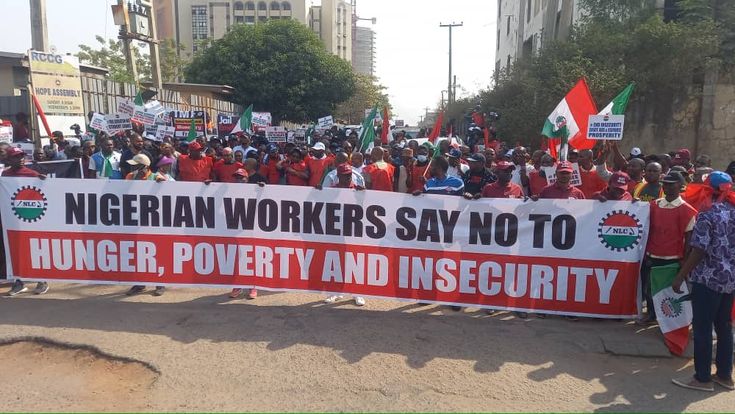BUSINESS

WORKERS TURN OUT EN MASSE ON MAY DAY, DEMAND IMPROVED WAGES AMID ECONOMIC STRAIN
…Labour decries poor implementation of minimum wage across states
Contrary to expectations of a low turnout, Nigerian workers showed strong presence at this year’s May Day celebrations held across the country, even as they lamented the deepening hardship under the current economic realities.
From the Eagle Square in Abuja to Tafawa Balewa Square in Lagos, IBB Square in Makurdi, and the Umuahia Township Stadium, thousands of workers defied economic hardship to mark International Workers’ Day with colourful parades and renewed calls for improved welfare and living conditions.
Despite visible enthusiasm at celebration grounds, many workers expressed frustration over the high cost of living, rising inflation, and the limited impact of the revised ₦70,000 minimum wage.
President Bola Tinubu and several state governors, including Lagos State’s Babajide Sanwo-Olu and Benue’s Hyacinth Alia, used the occasion to highlight their administration’s achievements and reiterate their commitment to workers’ welfare. However, labour unions have criticized these efforts as insufficient in addressing the harsh realities faced by the average worker.
Although the federal government raised the minimum wage from ₦30,000 to ₦70,000 in 2024, spiralling inflation and increased taxation in many states have diminished its value. According to the National Bureau of Statistics, Nigeria’s inflation rate climbed to 24.23% in March 2025, with food inflation playing a major role in eroding household incomes.
“We appreciate the increase, but it hardly meets our needs,” said Issah Madaki, a civil servant in Gwagwalada. “₦70,000 can’t even cover basic school fees or decent accommodation, let alone provide a comfortable living.”
Labour leaders, including Nigeria Union of Local Government Employees (NULGE) President Haruna Kankara, lamented the non-implementation of the new wage by over 20 states. These include Imo, Kaduna, Zamfara, Cross River, and the Federal Capital Territory. In some states where implementation has begun, local government workers and teachers remain excluded.
Even in states like Kwara and Kogi that have commenced payments, workers complain of increased taxation and unresolved backlogs of gratuities. “Our take-home pay has been heavily slashed by taxes,” said Seun Oyinlade, NULGE president in Kwara State.
In Kogi, NLC Chairman Amari Gabriel urged the state to pay the ₦65,000 wage promised to KOTRAMA workers and settle unpaid gratuities running into billions.
While some governors boasted of surpassing the federal wage benchmark, others like Benue’s Alia and Abia’s Alex Otti pointed to pension reforms, improved work culture, and targeted wage increases in sectors like healthcare as proof of progress. Yet, residents in security-challenged areas like Benue argue that safety and restored livelihoods are more critical than wage increases.
“Insecurity has displaced thousands. Minimum wage won’t matter if there are no farms to work or homes to return to,” said a telecom engineer from Benue.
At the national level, labour leaders Joe Ajaero (NLC) and Festus Osifo (TUC) used their joint May Day message to denounce rising repression, calling on workers to reclaim civic space and demand greater accountability.
As inflation and naira depreciation continue to bite, calls have intensified for a more holistic economic response beyond wage increments. Economist Olabode Ayeni stressed the need to stabilize the naira by reducing import dependency, expanding non-oil exports, and reviving manufacturing.
“The real solution lies in economic reforms that strengthen the naira, reduce food and transport costs, and ease workers’ burdens,” Ayeni said.
While May Day brought momentary celebration, many believe it also reignited the labour movement’s struggle for justice and economic dignity in Nigeria’s ongoing cost-of-living crisis.
"This represents a significant development in our ongoing coverage of current events."— Editorial Board









